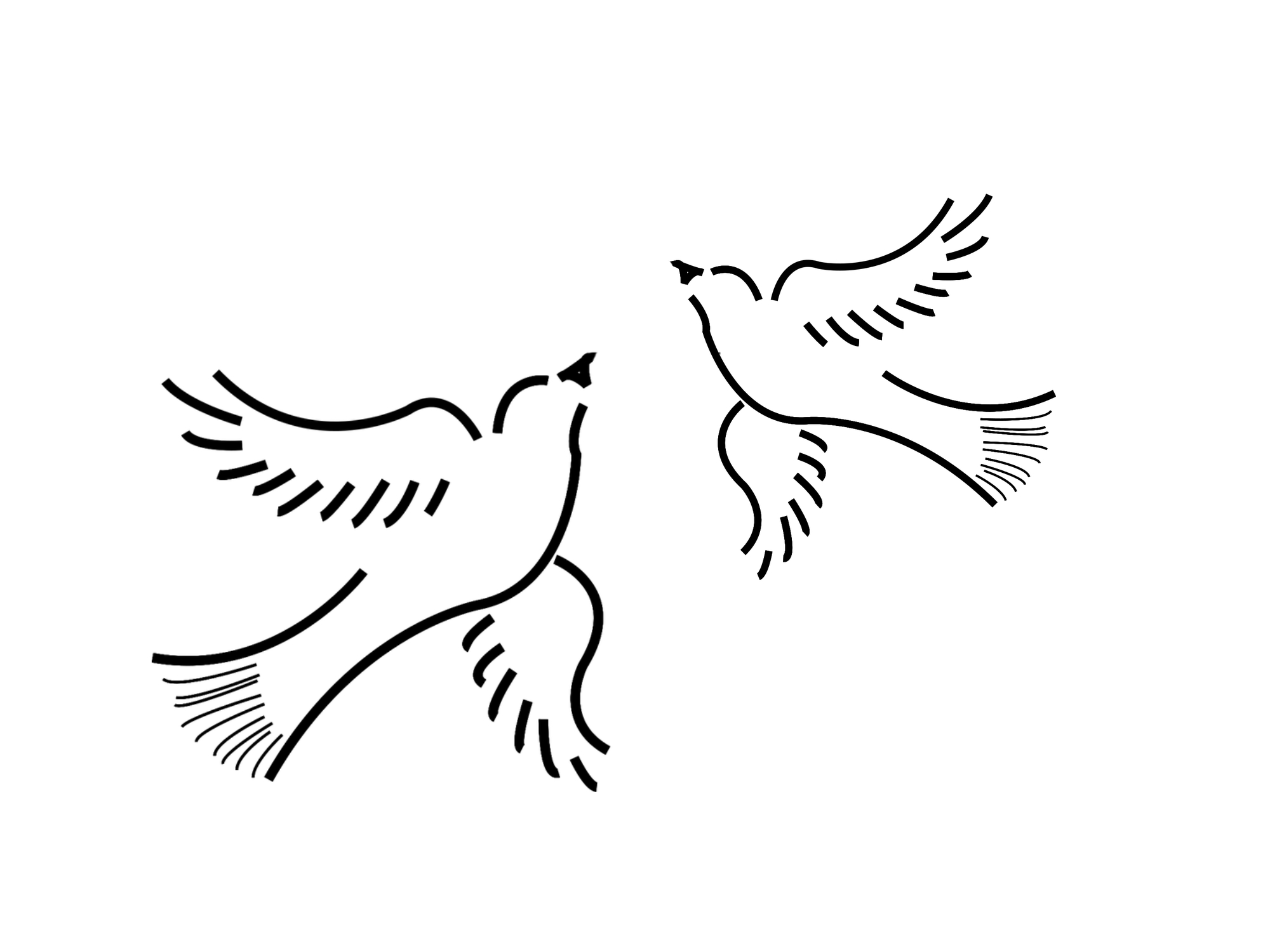Parties in conflict agree to enter into peace negotiations if they expect to gain more from them than from a continuation of fighting. The great powers behind Ukraine and Russia respectively could back up such an expectation. This seems to entail that these two powers must also make peace with each other.
Friedrich Glasl described in February, Das Goetheanum 9/2023, how the war in Ukraine could end. It was necessary, the peace researcher advised, to use windows of opportunity. Using the example of the negotiations on grain shipments, he showed that windows for peace negotiations would open for short periods of time. To continue with the image, I wonder whether there are also doors to peace, doors of opportunity. What is the difference? With a window you can look out, but not with a door which you first have to push open to reveal the view.
Currently there seems to be no route to peace negotiations between the Ukraine and Russia. War follows the logic described by Herfried Münkler, historian and war researcher. According to him, part of the dynamic of conflict is that peace negotiations are possible in the first few weeks and after that, the parties fight for the most favorable negotiating position, making peace talks impossible. Since neither of the parties in the conflict in question can be defeated in the near future, a war of aggression seems to have turned into a war of exhaustion or attrition.
According to Münkler, there will be no prospect of peace negotiations until the reserves are exhausted and the combat strength weakened. Such is the cold logic of slaughter. Both parties still seem to be far from such exhaustion. In Russia, popular support for President Putin remains unchanged at eighty percent. Even if these figures are embellished, the president undoubtedly has the majority of the population behind him and continues to succeed in keeping the numbers of fallen soldiers under wraps.
Nevertheless, unity seems to be cracking. The historian and journalist Mirko Drotschmann quotes a blog entry by Yevgeny Prigozhin from the 16th of April, 2023: “For the state and for society, it is necessary today to put a big fat full stop behind the special military operation. […] The ideal version would be for Russia to announce the end of the special military operation and declare that it has achieved all its planned goals.” Such a proposal indicates that Russia is not as politically unified as it appears, which is supported by the open conflict between the Ministry of Defence and the mercenary army.
Russia Has Not Stated Any War Aim
It is important for peace negotiations that none of the warring parties loses face, because otherwise they will not have domestic political backing for the compromise. In a video commentary, Drotschmann emphasizes that Russian President Putin has not yet formulated any precise war aims. Although he gave a general justification for the invasion, such as the absurd reference to the denazification of Ukraine, no territories were mentioned, except for the Donbass and Crimea which Putin declared to be Russian territory.
However, the status quo, as a peace option, is out of the question for the Ukrainian population because this would be tantamount to capitulation. This was made clear in a survey conducted on occasion of the Munich Security Conference in February, 2023 (Munich Security Report). According to the survey, ninety percent of the Ukrainian population would not want to capitulate, even in the event of a Russian nuclear strike. On April 7th, Ukrainian President Zelensky wrote on Twitter that there was no alternative to the liberation of Crimea for peace.
For this reason it does not seem feasible to formulate a peace plan by assigning the annexed territories to Russia. Moreover, this would legitimize Russia’s breach of international law. A compromise would probably consist of Russia releasing part of the annexed territories and Ukraine relinquishing part of its national territory. But how can both parties be brought to engage in such a hemorrhage? Stephen M. Walt, Professor of International Relations at Harvard University, developed an interesting proposal in this respect in the April 18th issue of the US journal Foreign Policy. He suspects that the US government does not expect a Ukrainian victory in the near future but, instead, that the Ukrainian armed forces would at most gain enough of an advantage for Putin to be prepared to enter into peace negotiations. Equally likely is a long war of attrition with many more victims.

What China Could Promise
Since the outbreak of war, many have hoped that China, as the dominant partner, would push Russia towards peace negotiations. So far this had not happened because China benefits from cheap oil and gas from Russia and welcomes the fact that the US is tied up here and therefore pays less attention to the Pacific region. Nevertheless, Walt argues, China would like to see an end to the war because it puts a strain on China’s trade with the EU. What if, Walt asks, China, after its successful mediation between Iran and Saudi Arabia, were now to influence Russia in such a way as to make peace negotiations possible? Then, in the eyes of world public opinion, China would be the bringer of peace and the US would be the warmonger.
This rather unlikely scenario leads Walt to suggest that China and the US should make their respective friendships with Ukraine and Russia count, in order to bring the two countries to the negotiating table. In doing so, the US could offer economic assistance and advocate for Ukraine’s membership in the EU. China could promise Russia the purchase of raw materials and the sale of high technology, and support Russia with its cutting-edge technology to arrive in the digital age.
With a mixture of threats and promises, the two great powers could bring the warring parties to the negotiating table. Such an agreement, brokered by China and the US, would be stable because Moscow and Kyiv would not want to mess with their powerful friends. Walt cites historical precedence: the USA and the Soviet Union, for example, ended the 1967 Six-Day War between Israel and Egypt through a UN resolution—to do this, they had to urge their allies to make peace.
A Peace of the Majors
The US would work with China on a joint peace initiative, and they would push and entice Ukraine and Russia respectively to enter into peace negotiations. What an option! Ultimately this path would also reduce the discord between the US and China. Such a solution is rather unlikely but promises a lot because it would be a double peace: between Ukraine and Russia and between China and the USA.
Image Pixabay
Translation Christian von Arnim





